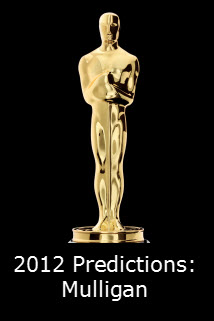Lincoln (2012)


Content by Tony Macklin. Originally published on November 18, 2012 @ tonymacklin.net.
Lincoln is like a course taught by a competent teacher. It's informative, but it's neither inspiring nor fascinating.
Director Steven Spielberg as teacher is glib. He's stagy. His is not a course that soars; it stays grounded in facts and tried-and-true effects.
Spielberg attempts to humanize history, but his technique mostly is safe and obvious.
Much of the film focuses on the struggle involved in preparing for the vote and the eventual act of voting in the House of Representatives for the 13th Amendment to the Constitution. The 13th Amendment was to abolish slavery.
As today, the House was recalcitrant and obstructionist. In 1865 it was the Dems who stood stridently against change.
Lincoln and his allies had to attain the nearly-impossible task of achieving 2/3 of favorable votes in the House.
When Spielberg has a choice between severity and sentimentality, he opts for sentimentality.
Near the beginning of Lincoln,* two African-American soldiers talk to Lincoln as they are about to go off to battle. It's a stilted scene that sets the tone for the film. It's one of the low points in Tony Kushner's erratic script.
The subject matter in Schindler's List (1993) kept Spielberg's sentimentality in check, but the abolition of slavery does not. In Lincoln,* sentimentality intrudes.
In one of the film's best lines, Lincoln says to his wife, "This once I ask you to take the liberal instead of the selfish point of view." It's piquant liberalism over the ages.
However, generally Spielberg and Kushner emit soft liberalism. I'm a liberal, but I disdain "Lean Forward" liberalism.
Several scenes in the film smack of propaganda. In Lincoln,* African-Americans are like product placement. They're set craftily in sequence after sequence.
With Lincoln,* a white director makes a movie from a screenplay by a white writer adapted from a book by a white historian. That's marketable liberalism.
The best aspect of Lincoln is the stellar performance by Daniel Day-Lewis as Abraham Lincoln. Day-Lewis always is devoted to finding the authenticity in his characters and living in it.
His Lincoln - who seems authentic - is low-key, cerebral, and takes engaging delight in entertaining others. His eyes sparkle and his tongue is deft.
Day-Lewis's Lincoln tells stories , jokes - one nicely crude - espouses Euclid, and quotes Shakespeare ("We have heard the chimes at midnight, Master Shallow"). He take solace in his mind and wit.
He rarely shows anger. One time he does react emotionally when in frustration he angrily vows that the moment for abolition has come.
But he usually avoids confrontation. He is thoughtful and pragmatic. This Lincoln has little fire in his belly.
The whole film lacks fire in its belly.
The most colorful figure in Lincoln is Thaddeus Stevens, a fierce abolitionist, and Chairman of the House Ways and Means Committee. Tommy Lee Jones plays him with compelling zest. It's a part that begs for vibrance, and Jones delivers it.
Sally Field says that she spent ten years preparing for a potential role as Mary Todd Lincoln. She read six books and put on 25 pounds in pursuit of the crucial role. Her commitment pays off.
Many of the other characters seem almost stick figures. If the voters in the House are at all fleshed out, it's generic.
Voting and voters were better done in HBO's John Adams.
Janusz Kaminski's cinematography in Lincoln is evocative. Rick Carter's production design is effectively based on actual settings.
Professor Spielberg, like Lincoln before him, knows his audience. His final exam is multiple choice, which allows more people to pass.
This review is much like Spielberg. Safe and secure.
But like Steven - the Patron Saint of Cinema - I don't know how to end it.


